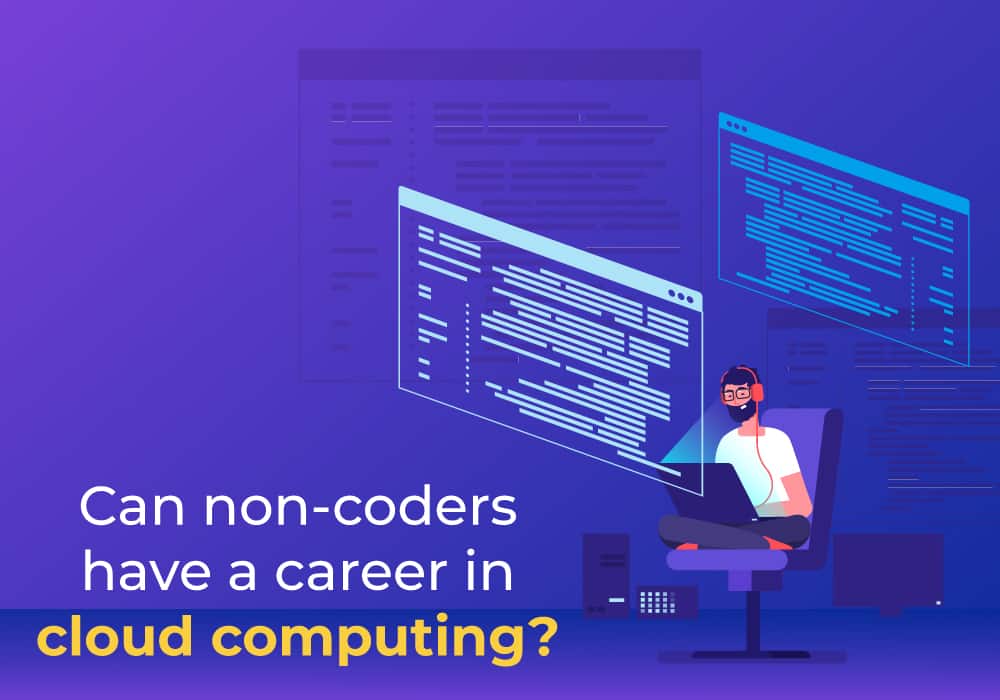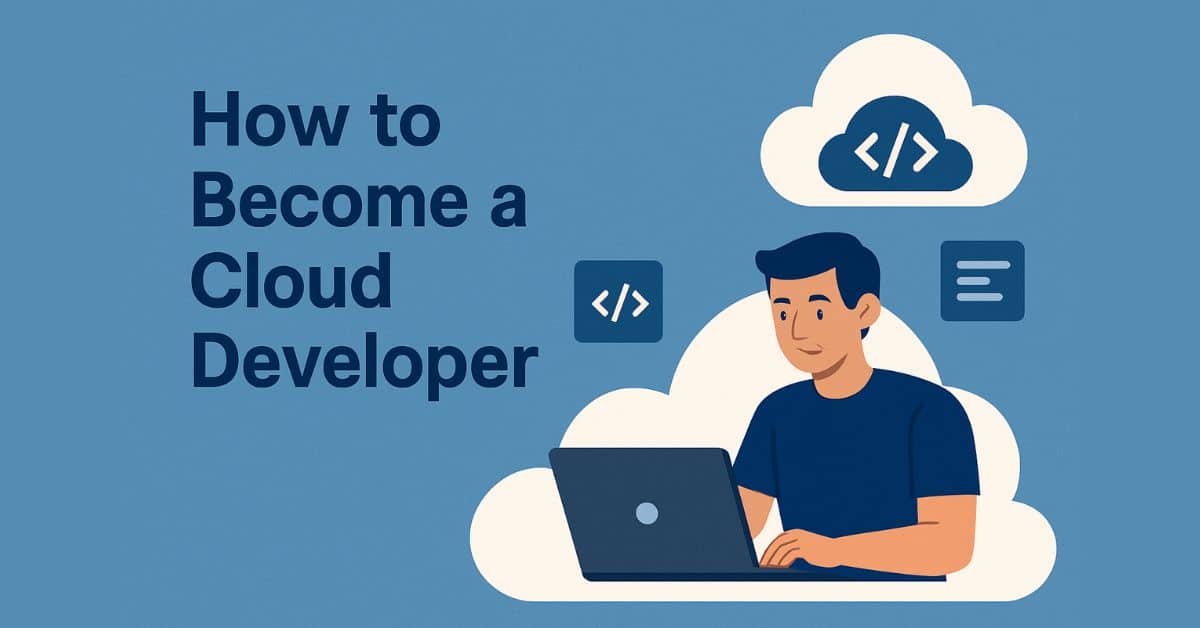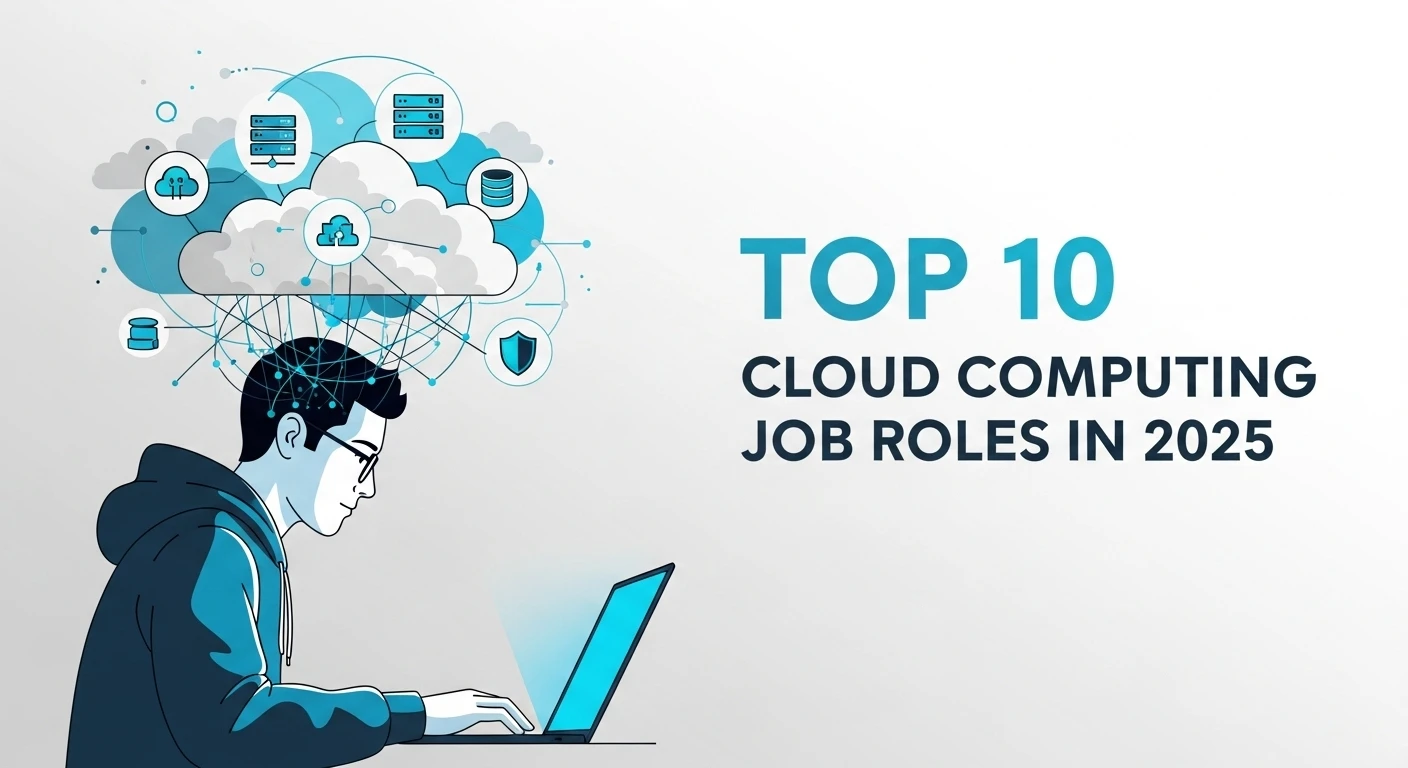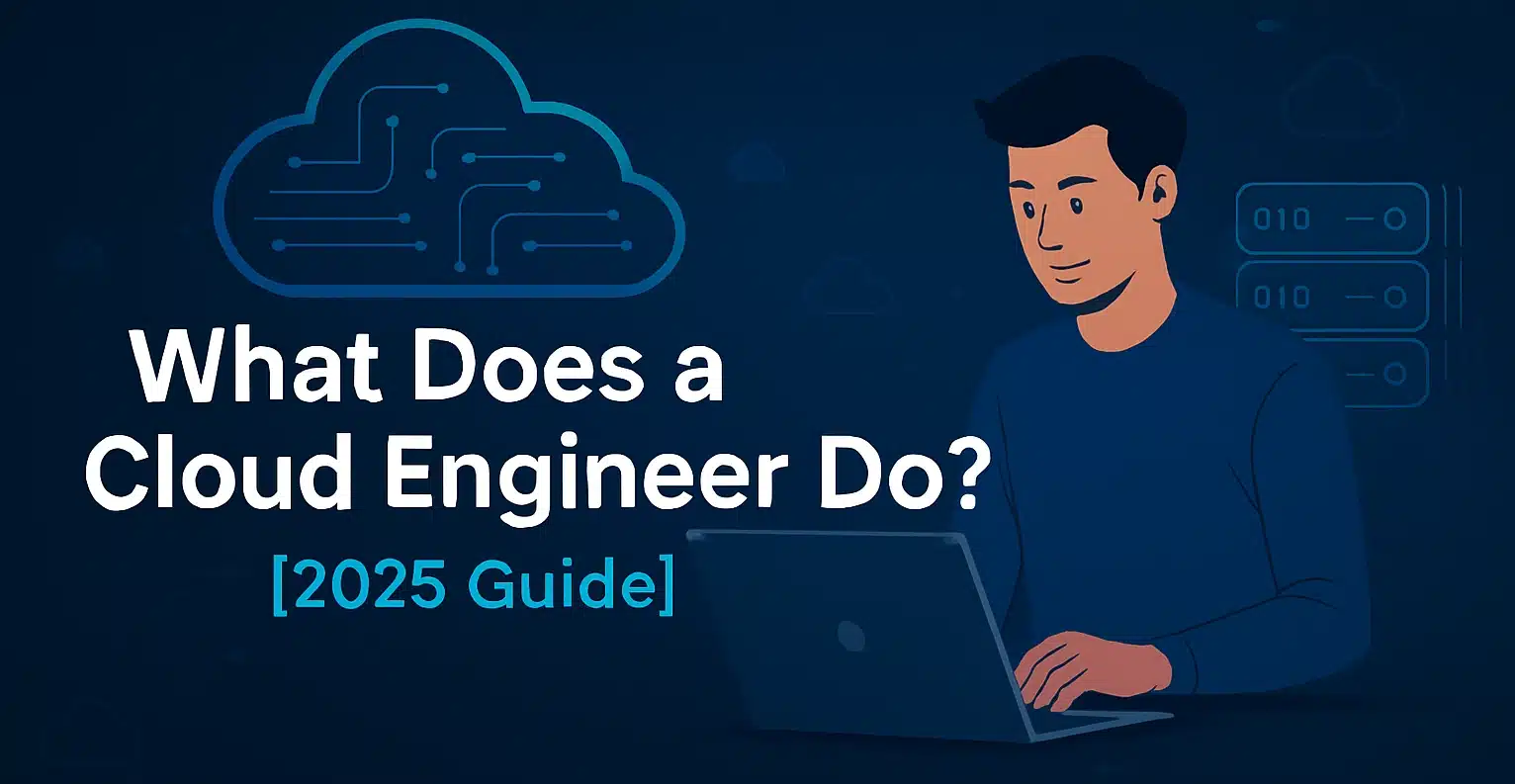Cloud Computing has gained massive popularity in the past half decade, and this popularity growth appears to be an upward trend. With this rising popularity, everybody wants to make a career in the domain. So much so, that many people from non-technical domains with less or no knowledge are wanting to harness Cloud Computing’s popularity for career opportunities. In this article, we will be answering a question that bothers many, that is, can non coders have a career in cloud computing?
Let's get started!
What is Cloud Computing?
Cloud Computing, in simple words, is nothing but providing on-demand services like:
- Storage
- Networking
- Computation
- Security
- Messaging
On metered usage, which can be accessed across the globe using the internet and all the resources are maintained and monitored by your vendor, giving you ample time to focus on your business. Many popular vendors in the market offer on-demand services. These are Amazon Web Services, Microsoft Azure, Google Cloud Platform etc. These vendors provide services in 245+ countries and serve in different locations across the globe.
Also Read: AWS EC2 Tutorial | What is AWS EC2?
With metered usage, we can use the resources and services offered by these vendors on a 'pay as you wish' basis. That means, we use a resource for N hours for N amount, then we will be charged only for that duration and the size of the resource. These resources are delivered to you in highly secured models in different offerings in the form of service and deployments models.
PG in Cloud Computing With AI Skills
Learn AWS, Azure & GCP with 80+ projects, 120+ services, expert mentorship & career support. Now with Applied AI on Cloud!
This was about what cloud computing is. Let us now go ahead and understand some career statistics and opportunities offered by Cloud Computing.
Cloud Computing Career Opportunities
Talking of career opportunities, Cloud Computing offers various career opportunities that serve different purposes in different forms. If we are to take a look at numbers that Cloud Computing attracts, then it is one of those skills that is the second most popular in terms of hard skills that companies are looking for in 2020.
An average Cloud Engineer makes 7-12 lakhs in India, and the pay increases as the experience and skillset increases. In the USA too the numbers are promising. An average Cloud professional makes USD 110K, and it can go up to $250K with relevant skillset and experience.
With Cloud Service vendors like Amazon Web Services and Microsoft Azure blooming at a very high rate, we see many companies wanting to hire people skilled in AWS, Azure and GCP. With 350 billion dollars expected to be invested in Cloud Computing this year, opting for a career in this domain may not be a bad option.
By now we know that Cloud Computing is a good career option. Let us try and answer a question, who is it for? Cloud Computing skilled individuals can have roles like:
- Cloud Engineer
- Cloud Architect
- Cloud Developer
- Cloud Administrator
- Cloud Practitioner
- Cloud Data Engineer
- Cloud Machine Learning Specialist
- Cloud Networking Specialist
- Cloud Security Engineer
- Cloud Support Engineer
However, Cloud vendors classify these roles in major categories such as:
- Cloud Solutions Architect: Ones who design or plan Cloud Solutions and Migrations
- Cloud Developers: Professional who can create these applications on cloud and create and migrate them to cloud
- Cloud Administrators: who can maintain the applications built or migrated to Cloud platforms
Some specialty certifications concern other roles that support applications that are built on the cloud. The question we are answering is, what can coders do on the cloud? And what can't coders do? So let us move to the next bit of this article.
Also Read: What do I need to know to be a cloud ops engineer?
What Coders Can Do with Cloud Computing?
With all that we have discussed so far, we are sure you must have guessed Cloud Computing is a blessing for developers. As a developer, individuals can build host and manage applications on Cloud platforms easily. Thus, making it easy for them to create an application on the Cloud. With various services offered by Cloud Service vendors, user can migrate their existing code to cloud or even set up an environment to write code within minutes.
Platforms like Amazon Web Services and Microsoft Azure make it easy to implements many end to end DevOps practices on Cloud with numerous services they offer. With automation, it becomes insanely easy to build an application on a cloud which support for deployment and production management.
If you know API, then you transition in the computing world becomes easier. This helps communicate with third-party tools and applications on offer. These platforms support popular programming and scripting knowledge so that you can feel at home on these cloud platforms. Platforms like Amazon Web Services and Microsoft Azure have specialty certifications or role-based certifications that certify you as a developer or a DevOps engineer.
Is Cloud for coders? Definitely as a coder you will enjoy your work in Cloud Computing. Let us now see what non-coders can do on Cloud.
What Non-Coders can do with Cloud Computing?
So can non-coders have a career on Cloud? They can. But, it is not as easy as it would be for a developer or administrator. So to start with, we have already listed the benefits of knowing to code for cloud computing. So it is clear that having coding skills are always a plus for Cloud Computing.
However, it is important to address why we are using Cloud Computing. As mentioned, platforms such as Amazon Web Services, Microsoft Azure and Google Cloud Platform offer numerous services, many of which do not require you to code. So knowingly or unknowingly, we are already using Cloud.
Even if we take a look at prerequisites, it clearly states that it is good to have these skills but not mandatory. That means people wanting to make a career here can either have these or not. Let us understand this from a choice perspective.
Let us assume that you do not know coding but want to learn. In that case, it is good to have knowledge on following the points or develop skills in the following areas:
- Networking
Fundamentals - Basic
Bash Fundamentals - Learn
a programming language
Two to three months’ investment of time is good enough for you to get started. What this will do, is give you more control over API usage, and you can advance into cloud computing very smoothly.
Let us now assume you are not very interested in learning to code. Just brush you Linux fundamentals, and basics of JSON, which should enough for you to help basics architecting on Cloud. You may get into non-technical roles, where you understand cloud computing, but at the same time take care of marketing or sales or pre-sales side of things. So there are numerous possibilities on can look into. The question is, how do you plan on approaching this problem? And how do you move ahead and solve your concerns in the domain?
This brings us to the end of this article on ‘Can Non-Coders Have a Career on Cloud?’ We hope by now you are aware of how you can approach a cloud computing a role as a non-programmer or a non-coder. So do continue your journey of having a career in Cloud domain. In pursuit of your journey if you question concerning Cloud Computing, Cloud Careers or related to Amazon Web Services or Microsoft Azure or other Cloud Service provider, then feel free to put that in the chatbox below. Out team would revert with an answer at the earliest. Happy Learning! You can also enroll with Great Learning's PG Cloud Computing Course and unlock you're dream career.






